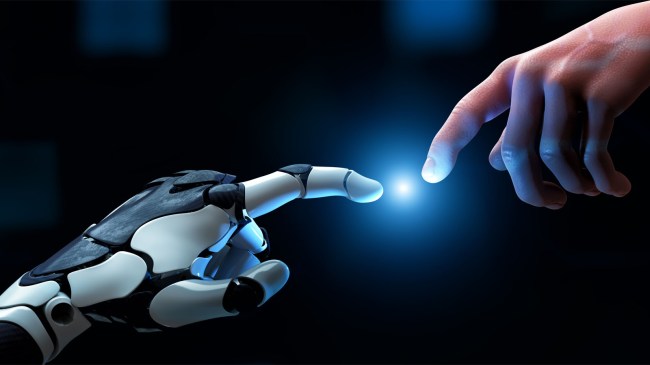iStockphoto
For the first time ever, a baby has been born after being conceived via in vitro fertilization (IVF) performed by a robot. And all a medical professional had to do was just oversee the process.
IVF is often done by what is called intracytoplasmic sperm injection (ICSI). Using that method, sperm is injected into eggs in a lab dish. Unfortunately, this process often fails due to human error.
To reduce these errors, Conceivable Life Sciences, a biotech company in New York City, created a robot that can perform all of the 23 micromanipulation steps required for ICSI.
Humans “become tired and distracted sometimes, just like everybody else in most professions, so errors happen that can reduce [the] odds of fertilization and births,” said Jacques Cohen of Conceivable Life Sciences.
The robot can be operated independently by artificial intelligence (AI). It can also be done with just the press of a button while the medical professionals watch a livestream of the process – something which even can be done from a different part of the world.
New Scientist reports that the robot uses an AI model to select the healthiest sperm cells, based on their appearance, for fertilization. It also uses a laser to remove the tails of the sperm to make them easier to grab. Then it injects the sperm into eggs.
To test it, the researchers compared using standard manual ICSI procedures to the automated system. Three eggs were fertilized using the manual ICSI approach. They all formed embryos – a 100% fertilization rate. Five donor eggs were fertilized by the automated system. That produced four embryos, or an 80% fertilization rate .
They then used another AI model to select the two best embryos, based on the appearance of their chromosomes. Both of these were produced using the automated system, but that doesn’t necessarily mean this approach leads to healthier embryos than manual ICSI, says Cohen. We can’t gauge this due to the small number of eggs involved, he says.
When the team inserted one of the embryos into the woman’s uterus, it failed to develop, but the second led to a successful birth.
“With AI, the system autonomously selects sperm and precisely immobilizes its midsection with a laser ready for injection – executing this rapid, precise process with a level of accuracy beyond human capability,” said lead engineer professor Gerardo Mendizabal-Ruiz.
The full results of the study were published in the journal Reproductive Biomedicine Online. In it they wrote, “This study demonstrates the feasibility of fully automated, remotely operated ICSI achieving a live birth. While improvements in autonomy and efficiency are needed, this milestone highlights the potential for automated systems to transform assisted reproductive technology practices globally, enhancing accessibility and standardization.”
Content shared from brobible.com.

